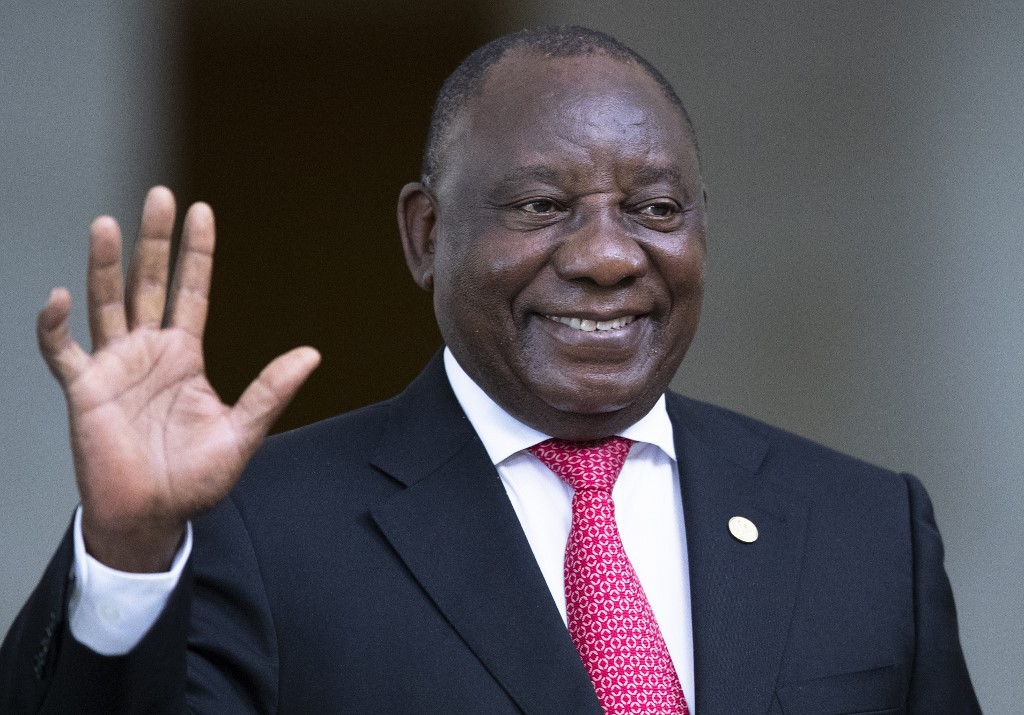CAPE TOWN, Feb. 3 (Xinhua) -- President Cyril Ramaphosa pledged on Monday to use South Africa's chairmanship of the African Union (AU) to promote the economic empowerment of African women.

South Africa's President Cyril Ramaphosa (File photo: AFP)
At the end of the week, Ramaphosa will travel to Addis Ababa, Ethiopia, for an AU summit at which South Africa will assume chairmanship of the continental organization for the next year.
"We plan to use this great responsibility, among other things, to promote the economic empowerment of the women of Africa," Ramaphosa said in his weekly address.
With the African Continental Free Trade Area coming into operation this year, Africa has an opportunity to ensure that women and women-owned businesses be able to meaningfully benefit from what will be the world's largest common market for goods and services, the president said.
"There has never been a better time to do so," he added.
Just as there can be no real gender equality without economic emancipation for women, so too there can be no sustainable economic growth for any country unless women are full and equal participants, said Ramaphosa.
South Africa's chairmanship of the AU coincides with the end of the African Women's Decade and the 25th anniversary of the landmark World Conference on Women, where United Nations member countries adopted the far-reaching Beijing Platform for Action toward greater equality and opportunity for women.
This is an opportunity for African countries to gauge the progress they have made to protect the fundamental freedoms of women, Ramaphosa said.
"It is also an opportunity to measure just how far we have come and what more needs to be done to broaden the economic participation of women," he added.
Ramaphosa stressed the need to acknowledge, for example, that the principle of equal pay for equal work is still not consistently applied.
Women's participation in certain industries, especially in science and engineering-related fields, is still far lower than that of men, according to Ramaphosa.
Women still carry the highest burden for child care and "unpaid work" in the home and still occupy lower paid and lower skilled jobs, he said.
Despite employment equity legislation, there are fewer women than men in senior management roles, especially in business, the president said.
"We want to use our term as AU chair to improve women's representation in economic and political decision-making processes in their home countries, in the AU, in the UN and in other multilateral organizations," said Ramaphosa.
He called for policy and regulatory harmonization across AU member countries that promote women's participation in the labor force but also in creating pathways to self-employment for women.
Importantly, this is a struggle that women themselves are leading, in different areas and in different ways, Ramaphosa said.
Eradicating gender-based violence, advancing affirmative action policies, supporting working mothers through the provision of affordable childcare, parental leave and flexible working hours, and making public spaces safer for women are all necessary if women are to participate meaningfully in economic activity, said Ramaphosa.
There can be no greater achievement than giving African women greater control over their lives and the ability to make decisions to advance greater economic security and personal empowerment, the president said.
"By unleashing the economic potential of women, we are unleashing the potential of our economies to grow and benefit all," he added.


